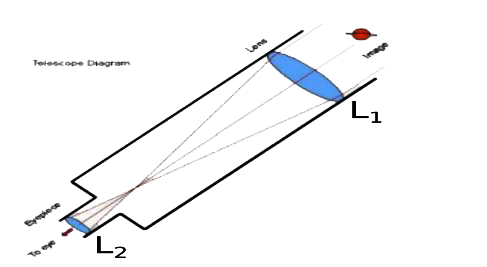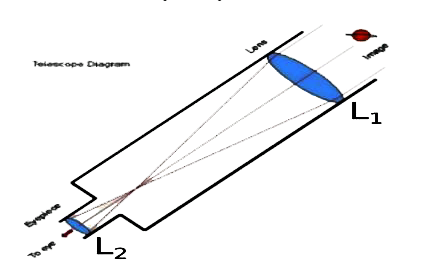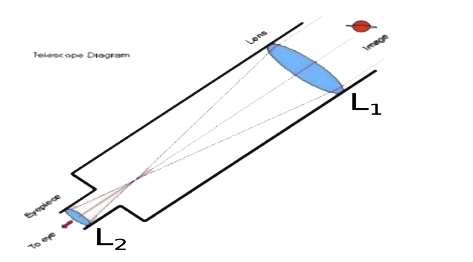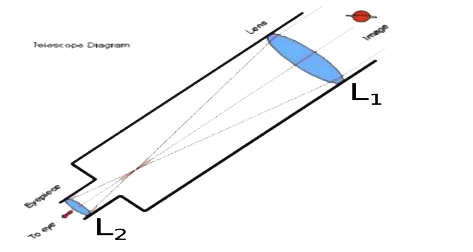The Hubble Space Telescope will search for planets around the stars, a key to the __________ extraterrestrial life , and examine interstellar dust and gases out of which stars are born.
perception
discovery
enquiry
quest
The correct Answer is:D
Step by step video, text & image solution for The Hubble Space Telescope will search for planets around the stars, a key to the __________ extraterrestrial life , and examine interstellar dust and gases out of which stars are born. by English experts to help you in doubts & scoring excellent marks in Class 14 exams.
Topper's Solved these Questions
Similar Questions
The path along which a planet revolves around its star is called an ________.
View SolutionGallee desired to use his telescope to make more discoveries in the heavens, but his instrument was too small. He made another sad Inteisscope which maguañed sight times, and then another which magnified thirty times, and pointed it at the moon. Hur heart leaped with joy, for he saw what no human eye had ever before seen-range of mountains, deep hollows, and broad plains He turned his telescope on the planets, and found they appeared with disks like the moon at a quarter fall. He turned on the Milky Way, and beheld innumerable tiny stars
Galileo made several telescopes becauseView Solution
Knowledge Check
- Question 1 - Select One
In the following question, the given sentence has four parts marked P,Q,R and S. Choose the part of sentence with the error and marks as your answer. If there is no error, mark 'No error (S)' as your answer.
The Kepler Space Telescope, ( P ) / launched on 2009, was designed ( Q) / to find planets around other stars. ( R ) / No error ( S)APBQCRDS - Question 2 - Select One
Sumati wanted to see the stars of the night sky. She knows that she needs a telescope to see those distant stars. She finds out that the telescopes, which are made of lenses, are called refracting telescopes and the ones which are made of mirrors are called reflecting telescopes.

So she decided to make a refracting telescope. She bought two lenses, L1 and L2. out of which L1 was bigger and L2 was smaller. The larger lens gathers and bends the light, while the smaller lens magnifies the image. Big, thick lenses are more powerful. So to see far away, she needed a big powerful lens.Unfortunately, she realized that a big lens is very heavy. Heavy lenses are hard to make and difficult to hold in the right place. Also since the light is passing through the lens, the surface of the lens has to be extremely smooth. Any flaws in the lens will change the image. It would belike looking through a dirty window.
Based on the diagram shown, what kind of lenses would Sumati need to makethe telescope?AConcave lensesBConvex lensesCBifocal lensesDFlat lenses - Question 3 - Select One
Sumati wanted to see the stars of the night sky. She knows that she needs a telescope to see those distant stars. She finds out that the telescopes, which are made of lenses, are called refracting telescopes and the ones which are made of mirrors are called reflecting telescopes.

So she decided to make a refracting telescope. She bought two lenses, L1 and L2. out of which L1 was bigger and L2 was smaller. The larger lens gathers and bends the light, while the smaller lens magnifies the image. Big, thick lenses are more powerful. So to see far away, she needed a big powerful lens. Unfortunately, she realized that a big lens is very heavy. Heavy lenses are hard to make and difficult to hold in the right place. Also since the light is passing through the lens, the surface of the lens has to be extremely smooth. Any flaws in the lens will change the image. It would be like looking through a dirty window.
Sumati bought not-so-thick lenses for the telescope and polished them. What advantages, if any, would she have with her choice of lenses?AShe will not have any advantage as even thicker lenses would give clearer images.BThicker lenses would have made the telescope easier to handleCNot-so-thick lenses would not make the telescope very heavy and also allow considerable amount of light to pass.DNot-so-thick lenses will give her more magnification
Galileo desired to use his telescope to make more discoveries in the heavens, but his instrument was too small. He made another and larger telescope which magnified eight times, and then another which magnified thirty times, and pointed it at the moon. His heart leaped with joy, for he saw what no human eye had ever before seen - ranges of mountains, deep hollows, and broad plains! He turned his telescope on the planets, and found they appeared with disks like the moon at a quarter full. He turned it on the Milky Way, and beheld innumerable tiny stars.
When Galileo saw what no human eye had ever before seen heView SolutionSumati wanted to see the stars of the night sky. She knows that she needs a telescope to see those distant stars. She finds out that the telescopes, which are made of lenses, are called refracting telescopes and the ones which are made of mirrors are called reflecting telescopes.

So she decided to make a refracting telescope. She bought two lenses, L1 and L2. out of which L1 was bigger and L2 was smaller. The larger lens gathers and bends the light, while the smaller lens magnifies the image. Big, thick lenses are more powerful. So to see far away, she needed a big powerful lens. Unfortunately, she realized that a big lens is very heavy. Heavy lenses are hard to make and difficult to hold in the right place. Also since the light is passing through the lens, the surface of the lens has to be extremely smooth. Any flaws in the lens will change the image. It would be like looking through a dirty window.
What is the formula for magnification obtained with a lens?View SolutionSumati wanted to see the stars of the night sky. She knows that she needs a telescope to see those distant stars. She finds out that the telescopes, which are made of lenses, are called refracting telescopes and the ones which are made of mirrors are called reflecting telescopes.

So she decided to make a refracting telescope. She bought two lenses, L1 and L2. out of which L1 was bigger and L2 was smaller. The larger lens gathers and bends the light, while the smaller lens magnifies the image. Big, thick lenses are more powerful. So to see far away, she needed a big powerful lens.Unfortunately, she realized that a big lens is very heavy. Heavy lenses are hard to make and difficult to hold in the right place. Also since the light is passing through the lens, the surface of the lens has to be extremely smooth. Any flaws in the lens will change the image. It would be like looking through a dirty window.
If the powers of the lenses L1 and L2 are in the ratio of 4:1, what would be the ratio of the focal length of L1 and L2View SolutionA passage is given with 5 questions following it. Read the passage carefully and choose the best answer to each question out of the four alternatives and click the button corresponding to it
The function of education is to prepare young people to understand the whole process of life. The end of education is not merely to pass some examinations and get a job and earn one.s livelihood. If education is to make people understand life, then surely life is not merely a job or an occupation, life is something extraordinarily wide and profound, it is a great mystery, a vast realm in which we function as human beings. If we prepare ourselves only to earn a livelihood, we shall miss the whole point of life. To understand life is much more important than to get a degree or pass an examination for a job. life, with all its subtleties, is such a vast expanse. It has its extraordinary beauty, its sorrows and joys. It also has its hidden things of the mind such as envies, ambitions, passions, fears, fulfilments and anxieties. The birds, the flowers, the flourishing trees, the heavens, the stars, the rivers and the fishes there in-all this is life. When we are young we must seek and find out what life is all about. Thus we cultivate intelligence with the help of education. Intelligence is the capacity to think freely, without fear, without a formula, so that we begin to discover for ourselves what is real and what is true. Anyone who is gripped with fear will never be intelligent. Most of us have fear in one form or another. Where there is fear there is no intelligence. Thus what education should do is help us understand the need of freedom. Unless we are free we will not understand the whole process of living. When we are free we have no fear. We do not imitate but we discover.
When we are young we shouldView SolutionA passage is given with 5 questions following it. Read the passage carefully and choose the best answer to each question out of the four alternatives and click the button corresponding to it
The function of education is to prepare young people to understand the whole process of life. The end of education is not merely to pass some examinations and get a job and earn one.s livelihood. If education is to make people understand life, then surely life is not merely a job or an occupation, life is something extraordinarily wide and profound, it is a great mystery, a vast realm in which we function as human beings. If we prepare ourselves only to earn a livelihood, we shall miss the whole point of life. To understand life is much more important than to get a degree or pass an examination for a job. life, with all its subtleties, is such a vast expanse. It has its extraordinary beauty, its sorrows and joys. It also has its hidden things of the mind such as envies, ambitions, passions, fears, fulfilments and anxieties. The birds, the flowers, the flourishing trees, the heavens, the stars, the rivers and the fishes there in-all this is life. When we are young we must seek and find out what life is all about. Thus we cultivate intelligence with the help of education. Intelligence is the capacity to think freely, without fear, without a formula, so that we begin to discover for ourselves what is real and what is true. Anyone who is gripped with fear will never be intelligent. Most of us have fear in one form or another. Where there is fear there is no intelligence. Thus what education should do is help us understand the need of freedom. Unless we are free we will not understand the whole process of living. When we are free we have no fear. We do not imitate but we discover.
What is the effect of fear on humans?View Solution

